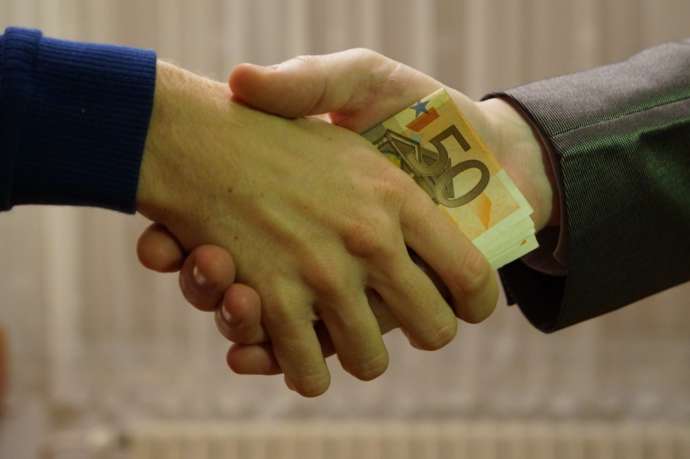STA, 9 June 2020 - Cheating with tourist vouchers (turistični boni) will not pay off as fines are relatively high, from EUR 1,200 to 40,000 for legal entities and from EUR 200 to 600 for individuals, heard a news conference at which some details about the vouchers - a state aid measure to help Slovenian tourism survive the Covid-19 crisis - were presented on Tuesday.
The Economy Ministry held the news conference a day after the government specified the use of tourist vouchers, deciding they could be used in several instalments, not necessarily all at once, as initially planned.
The Financial Administration (FURS) will be in charge of paying tourism companies at which a tourist will want to pay with a voucher. The deadline for payment will be 30 days.
Peter Grum, FURS deputy director general, said this demanding project for FURS will have two goals - to provide a simple, fast and effective manner of payment and to prevent fraud.
There are some 2.05 million people with permanent residence in Slovenia eligible for vouchers, of whom around 1.7 million adults and 350,000 minors (under 18).
The former will receive a EUR 200 voucher and the latter EUR 50 to spend on bed and breakfast or only on bed at Slovenian tourism facilities until the end of 2020.
Grum said the goal of a simple, fast and efficient voucher payment is important so that the state aid comes to those who need it fast - the tourism sector.
He said there were several oversight mechanisms in place to prevent abuse, with random checks to be carried out by FURS and market inspectors.
For instance, vouchers could only be used at tourism companies incorporated no later than 13 March, the start of the epidemic.
Another safeguard is that vouchers will be available only electronically, as a credit in FURS's IT system.
Tourism companies will also have access to their guests' voucher credit in order to avoid a tourist using their voucher at some other accommodation provider.
Where there is no internet, at mountain huts, for instance, a tourist could pay for the accommodation with their own money and then claim a refund from FURS.
However a tourist voucher could not be used for accommodation payment on platforms such as Booking or Airbnb, explained Grum, adding that it could be used if booking was made through such platforms but the payment itself was made at the provider of accommodation.
Tourism companies will have a discretion to accept vouchers.
However, Economy Minister Zdravko Počivalšek does not expect them to reject vouchers, arguing a voucher is comparable to a credit card and the payment period will be generally even shorter.
He again defended the government decision to offer vouchers only for bed or for bed and breakfast, saying this was a conscious decision.
Making vouchers available for all inclusive services, "would lead to an even greater concentration at large tourism companies, which would worsen multiplicativity".
"Deciding between giving a hotelier a fish or a fishing rod, we decided to give them a fishing rod. And I believe many smaller companies will make an awfully big effort to be competitive with those who might be just waiting [for tourists] because they are located at well-known destinations or are better known already."
Tourist vouchers will be available between 19 June and 31 December, and FURS will have until the end of January 2021 to pay all the voucher-based bills.
They are one of the main measures from the third coronavirus stimulus package, passed at the end of May, and are estimated to cost the state EUR 345 million.






